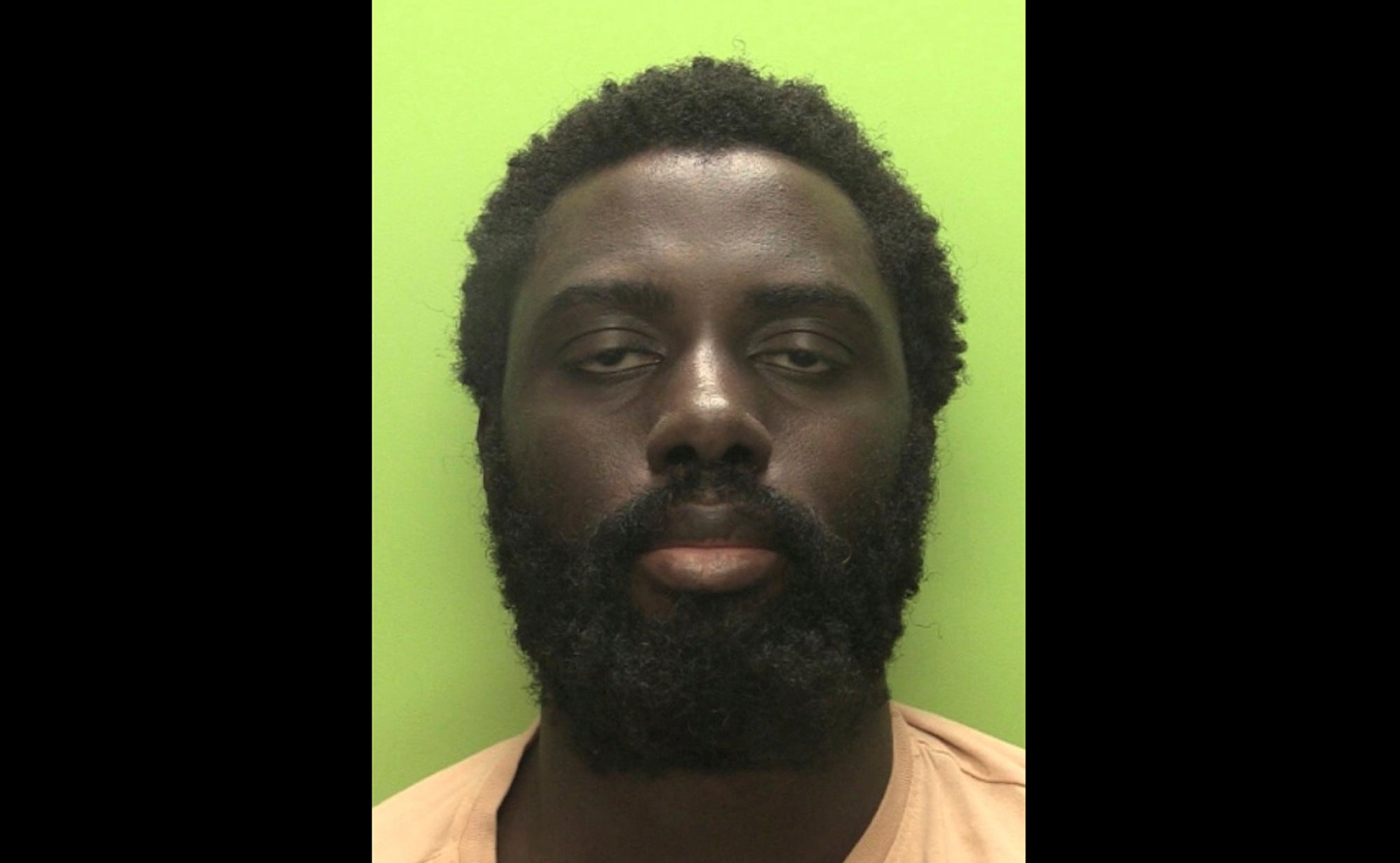UK appeals court asked to assess whether sentencing of killer of 3 in Nottingham was too lenient
The British government’s top lawyer has referred to the U_K_’s Court of Appeal the sentence handed to a 32-year-old man with paranoid schizophrenia who fatally stabbed two college students and a man in the central English city of Nottingham last summer for potentially being too “unduly lenient.”

Your support helps us to tell the story
From reproductive rights to climate change to Big Tech, The Independent is on the ground when the story is developing. Whether it's investigating the financials of Elon Musk's pro-Trump PAC or producing our latest documentary, 'The A Word', which shines a light on the American women fighting for reproductive rights, we know how important it is to parse out the facts from the messaging.
At such a critical moment in US history, we need reporters on the ground. Your donation allows us to keep sending journalists to speak to both sides of the story.
The Independent is trusted by Americans across the entire political spectrum. And unlike many other quality news outlets, we choose not to lock Americans out of our reporting and analysis with paywalls. We believe quality journalism should be available to everyone, paid for by those who can afford it.
Your support makes all the difference.The British government's top lawyer has referred to the U.K.'s Court of Appeal the sentence handed to a 32-year-old man with paranoid schizophrenia who fatally stabbed two college students and a man in the central English city of Nottingham last summer, arguing that it was “unduly lenient.”
Attorney General Victoria Prentis said Tuesday she had asked the court to reconsider last month's sentencing of Valdo Calocane to an indefinite hospital order after he pleaded guilty to manslaughter on the grounds of diminished responsibility as a result of his mental illness. The judge in his case said that he would “most probably” spend the rest of his life in a high-security medical facility.
Family members of those killed by Calocane on the early hours of June 13 — Barnaby Webber and Grace O’Malley-Kumar, both 19, and school caretaker Ian Coates, 65 — slammed the verdict, saying that he should have been tried for murder.
Doctors had argued that Calocane felt he was being controlled by external influences and that his family were in danger if he didn’t obey the voices in his head. As a result, prosecutors concluded “after very careful analysis of the evidence” that he could forward a defense for manslaughter.
Prentis praised the families and friends of the victims for their “immeasurable strength during this devastating time” and said it was “no surprise" that she had received many representations to refer the case to the appeals court.
“Having received detailed legal advice and considered the issues raised very carefully, I have concluded that the sentence imposed against Calocane, for the offences of manslaughter by reason of diminished responsibility and attempted murder, was unduly lenient and will be referred to the Court of Appeal," Prentis said.
The families welcomed the decision and laid out the hope that there will the “appropriate justice” that they have been calling for.
However, they said in a joint statement that “this is just one part of the tragic failures in this case.” In addition to the sentencing, they said the local mental health authorities, prosecutors and local police have questions to answer.
Around dawn on June 13 last year, Calocane repeatedly stabbed Webber and O’Malley-Kumar as they walked home after celebrating the end of exams at the University of Nottingham, where they had both excelled, particularly on the sports field. Soon after, Calocane encountered school caretaker Ian Coates, who was months away from retirement. Caolcane stabbed Coates and stole his van.
He then ran down three people in the streets before he was stopped by police. Calocane, who had formerly been a student at the university, admitted to three counts of attempted murder relating to the pedestrians he deliberately targeted.
At the time of his rampage, Calocane was wanted by police for failing to appear in court for assaulting an officer nine months earlier, on one of several occasions when police had taken him to a mental hospital.